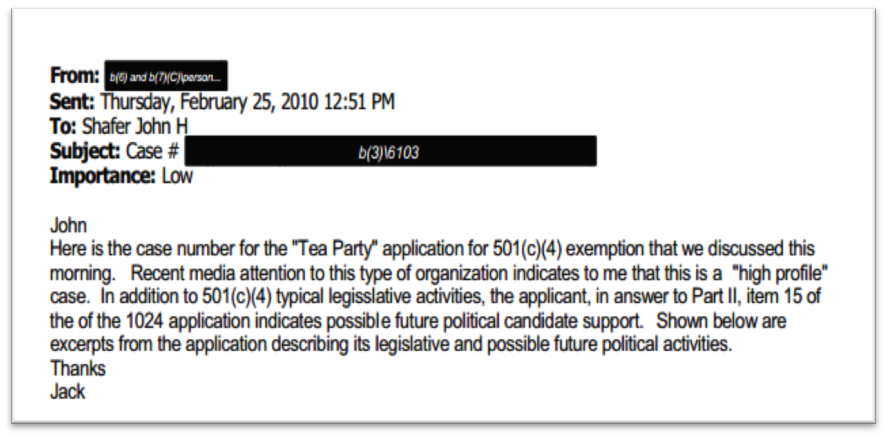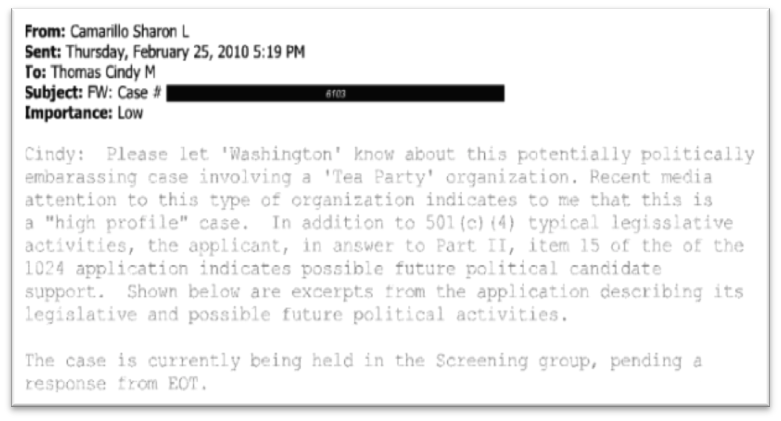Cause of Action in the News:
Full Measure – Full Measure with Sharyl Attkisson
In the fight for government transparency, Cause of Action graded federal agencies on their transparency and response time to FOIA requests. Not surprisingly, many agencies earned very poor grades while two received A’s. Interestingly, the Department of Veterans Affairs scored an A, despite public exposure of the agency’s notorious wait-time scandal the same year. Cause of Action Executive Director Dan Epstein opined, “if you think about it, part of the reason the public knows about the VA scandal is because of the easy ability to get documents. That should show why transparency is actually a good thing for reforming federal agencies.”
Wall Street Journal – Franz Kafka in Footie Pajamas (My consignment company for secondhand children’s clothes has somehow run afoul of federal regulators.)
Meet Cause of Action client Rhea Lana Riner, a business woman who started a small and successful consignment business in 1997 that now has franchises in 24 states. Rhea Lana relies heavily on volunteers who are willing to help before and during the events who then get rewarded with perks such as being able to shop first. The Department of Labor decided that her volunteers must actually be considered employees and that she owes them back wages. Even though none of the volunteers have come forward demanding payment for their volunteer hours, the Dept. of Labor continues to try to obstruct Rhea Lana’s business.
In Other News:
Government Exec – Inspectors General Continue Battle With Justice Over Document Access
The Justice Department has written to Congress that there should be a change in the law that would allow federal agencies to deny access to certain information by inspectors general. They write this as congress holds hearings on a bill that would empower the inspectors general to do their job. The IGs responded saying “While the DOJ agrees with CIGIE that legislation is needed and should be passed by Congress to reverse the impact of the OLC opinion, the DOJ’s proposal only applies to the DOJ Inspector General’s access to records and fails to ensure that all other federal inspectors general have the same independent access at their respective agencies. As such, DOJ’s proposed legislative language is not acceptable.”
Politico – State Dept.: Outlook crashes delay release of Hillary Clinton schedules
The State Department has been unable to meet the deadline for turning over former Secretary of State Hillary Clinton’s emails due to multiple Microsoft Outlook crashes. Kelly Degnan, the State Deputy Executive Secretary, wrote a declaration that stated, “[t]hroughout August and the early part of September, problems with the Microsoft Outlook software caused Outlook to crash during the indexing process (a process that is necessary in order to conduct searches of emails which have been retained as .pst files) for searches [State’s executive secretariat within the office of the secretary] was running for other requests, preventing S/ES-S from applying search terms to the records and forcing S/ES-S to restart the indexing process[.]”
Daily Caller – EPA’s Smog Regulation Will Cost 40x More Than It Predicted
A new report by the American Action Forum says the Environmental Protection Agency estimate on the cost of the new smog limits is highly inaccurate. According to the EPA, the new limits will cost $1.4 billion per year; however, AAF has determined the American people will be losing $56.5 billion in income. The report, which looked at counties who were not compliant with the 2008 standard, explains “[o]bserved nonattainment counties experienced losses of $56.5 billion in total wage earnings, $690 in pay per worker, and 242,000 jobs between 2008 and 2013.” With so many penalties for noncompliance with the 2008 smog standard, it makes sense that the new standards will have an even harsher impact.
SF Gate – Feinstein calls for end to controversial EB-5 immigration program
The EB-5 visa program gives out green cards to foreign nationals and their families if they invest into U.S. businesses. Without Congressional action, the program is set to expire in December. One of the strongest opponents is Senator Diane Feinstein, who noted “[a]t its most basic, the EB-5 program allows a foreigner to invest $500,000 in a U.S. business, in return receive a visa that puts them and their direct family on a special path toward citizenship. At the same time, individuals unable to buy their way into the country remain trapped in seemingly endless visa backlogs that often last more than 20 years. I believe the program is deeply unfair, sends the wrong message about this country’s values and is prone to fraud and abuse.”


